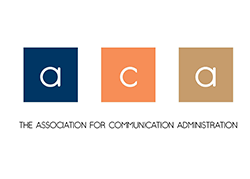Abstract
This article offers evidence of how law pertains to the management of theatre programs and argues that to accept the common characterization of the law as an instrument of social control or as the science of social problem-solving is to ignore the larger intellectual life it affords. Whether we acknowledge it or not, those of us who administer theatre programs are engaged in an activity that is informed by and subject to the legal imagination and the culture of argument it creates. In 1990 the Carnegie Foundation published a report entitled Campus Life: In Search of Community. The report chronicles a problem of increasing concern to higher education: social conditions on the campus that mitigate against community. In particular, it registers concern about the deep ambivalence many college leaders feel about how the campus should be governed. It would appear that although academic rules are reasonably clear, social regulations are ambiguous at best. Although inevitable and desirable, the relaxation of student codes in the 196O's and the subsequent abandonment of the in loco parentis approach to legislating student conduct produced a dilemma for the academy. Despite a desire for enlightened approach to campus governance consonant with contemporary values, campus leaders are still obligated to care for students, are still responsible for the well-being of the institution, and remain accountable to the community-at-large and to the law of the land. Problems ranging from cheating to substance abuse are on the rise. There is a growing concern about crime, about a breakdown of civility on campus, about intolerance, about an unhealthy separation between in-class and out-of-class activities. Although a more restrictive campus code is probably not the answer, present conditions betoken a need to balance freedom with responsibility, autonomy with community. It was out of a determination to address such needs that the law, as we now understand it, emerged.
Recommended Citation
Countryman, J. C. (1993). Academic theatre and the law. Journal of the Association for Communication Administration, 22(2), 22–28.


